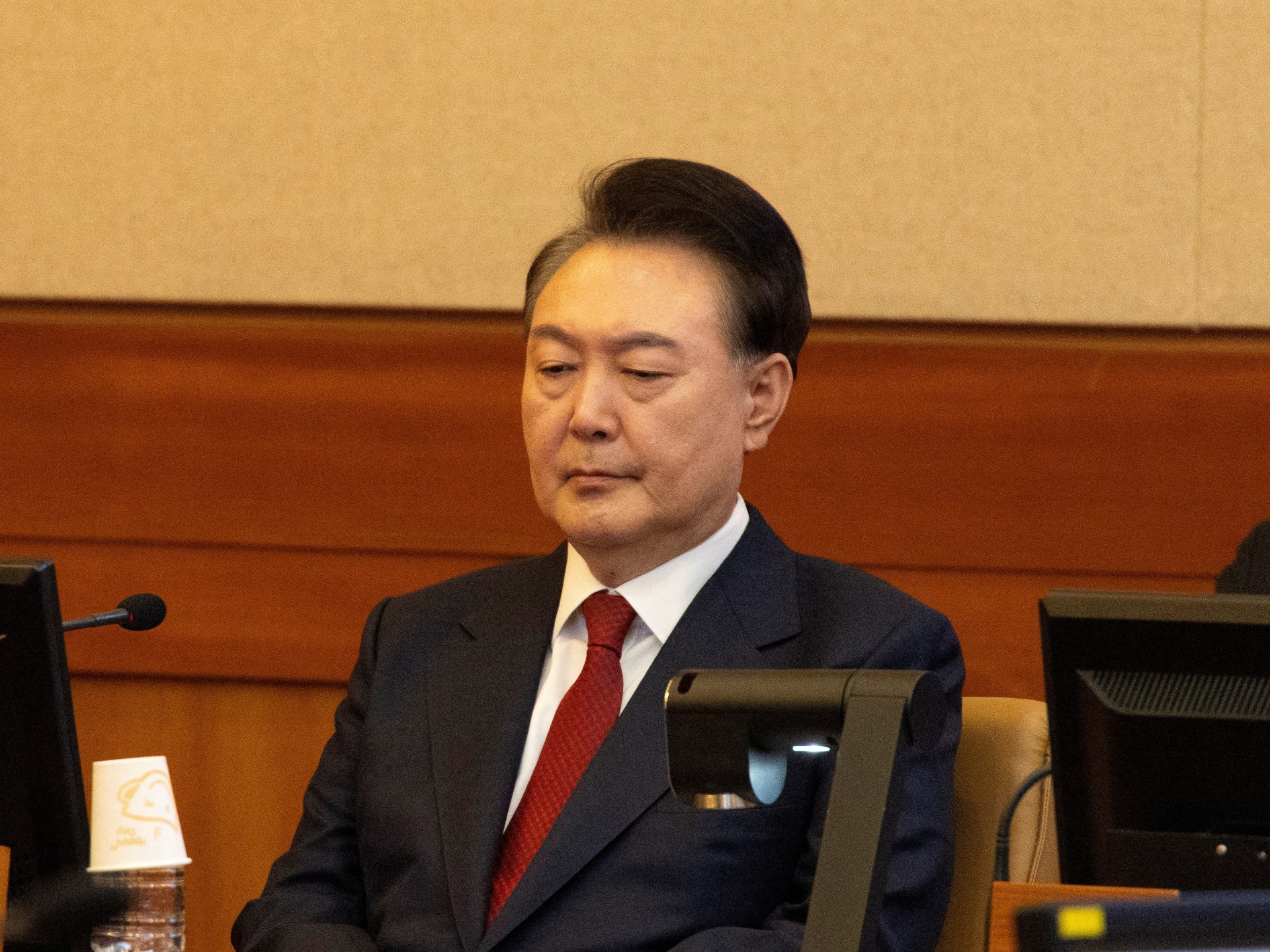Lawyers defending Yoon, who stands charged with trying to incite a rebellion, called for his release from custody.
South Korean President Yoon Suk-yeol has appeared in court for a preliminary hearing on allegations he was attempting to orchestrate a rebellion when he briefly imposed martial law in December.
The hearing – held at the Seoul Central District Court on Thursday, where security was heightened as dozens of his supporters rallied nearby – involved discussions around witnesses and other preparations in advance of his criminal trial.
The court will also review a request by Yoon’s lawyers to cancel his arrest and release him from custody.
Police arrested Yoon on January 15 after a weeklong standoff at his residential compound, in the first such action taken against a sitting president in South Korea.
Yoon declared martial law in a television address on December 3, claiming the shock move was to “safeguard a liberal South Korea from the threats posed by North Korea’s communist forces and to eliminate antistate elements”.
Yoon’s decree brought thousands of angry protesters opposing the move to the streets, before lawmakers in the National Assembly voted it down and lifted the martial law within about six hours of it being declared.
Authorities indicted Yoon on January 26 on charges of staging a rebellion, alleging that his decree was an unlawful attempt to shut down the National Assembly and arrest politicians and election authorities.
While presidents in South Korea enjoy immunity from most criminal prosecutions, an exception is made for charges of rebellion or treason. If convicted, Yoon faces a potential punishment of death or life in prison.
Yoon’s defence minister, Kim Yong-hyun, as well as the national police chief Cho Ji-ho and several military commanders have also been arrested and indicted on rebellion, abuse of power and other charges related to the decree.
While short-lived, Yoon’s martial law declaration has plunged the country into political turmoil.
On December 14, the National Assembly overwhelmingly voted to suspend Yoon’s presidential powers and impeach him.
In a parallel impeachment trial to Yoon’s criminal case, South Korea’s Constitutional Court is now nearing a decision on whether to formally remove him from office or dismiss the motion and reinstate him.
Al Jazeera correspondent in Seoul, Rob McBride, said that should the court uphold Yoon’s impeachment, South Korea will hold elections within 60 days.
“This drama continues, and of course, the country remains in a kind of diplomatic limbo,” McBride said outside the Seoul court where Yoon’s trial is taking place.
“The country’s acting president, Choi Sang-mok, has not even spoken on the phone with [United States President] Donald Trump, the leader of South Korea’s most important ally,” he added.
Yoon’s vocal supporters, hundreds of whom rioted at the Seoul Western District Court after it authorised his arrest last month, have protested against the legal action being taken against him.
Yoon has also maintained a defiant stance, continuing to express contempt for his liberal rivals and endorsing baseless conspiracy theories about election fraud.
